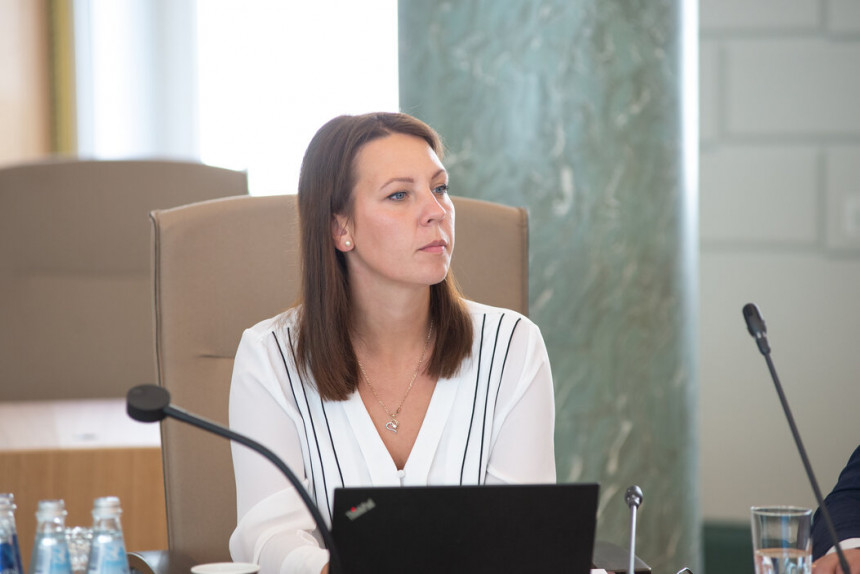MoES Anita Muižniece: We must promote research transfer to the economy

Neatkarīgā interviews Anita Muižniece, Minister of Education and Science.
Recently, it was made public that this year's funding for science development is significantly higher than in previous years. Has the funding returned to the level it was before the 2008/2009 crisis when it was significantly reduced?
This year has seen a major and very welcome step forward for science. We have achieved a 32% increase in the base funding for research compared to the previous year, or €7.6 million. I would like to remind you that during the 2008 crisis, funding for science was cut by almost half. In the following years, it was increased very slowly, but with this year's additional allocation, the base funding for research has returned to and slightly exceeds the pre-crisis level in 2008. At the same time, we have received an additional three million for basic and applied research programs, which are crucial for innovation. I am very pleased that potentially good projects will no longer be left behind. And we have allocated €1.6 million for Latvia's participation in CERN, the European Organization for Nuclear Research. This brings the total funding for science this year to €12.2 million. The additional funding for science in the 2022 budget is the highest since 2008. I hope that support for science will continue at the same level in the future, with an additional annual allocation of €7-10 million. I believe that funding is the first step in making Latvia more competitive, because at the moment, when we look at the state budget investment in research as a percentage of GDP, we see that Latvia is 21st among EU countries, with about a third of the EU average.
Sufficient basic funding for research is also very important for our scientists in order to provide certain stability and to be able to plan for the long term.
Which are the priority sectors to receive this funding?
According to the international assessment of scientific institutions that was completed last spring, together with the Ministry of Education and Science and the Ministry of Economy, the Smart Specialization Strategy, or RIS3, has been identified as one of the priorities. Since 2014, the strategy has already identified five areas of specialization: knowledge-intensive bioeconomy, photonics and smart materials, technology and engineering systems, biomedicine, medical technology, pharmaceuticals, smart energy and mobility, information and communication technologies.
Are Latvian entrepreneurs ready to use and integrate the results of scientists in their businesses?
Yes, absolutely, but we need to promote the circulation of information so that businesses are well enough informed about what our scientists are doing. When I meet people from research institutes in person, I see that they are working on phenomenal things, but not enough information is getting out to the general public and to business. We are well aware that the aim of scientists' work is to transfer the results of their research into business, so I call for a louder voice about scientific achievements and to look for opportunities to use them in our economy.
When it comes to CERN and the European Space Agency, where we are associate members, the links with business are very strong, which could serve as a good example for other areas. I believe that scientific work needs to be discussed more broadly, not between scientists and business, but with society as a whole, to show how research also benefits the economy and society as a whole. I hope that the work of scientists will be widely published and discussed in the coming years, and that this is one way of motivating the younger generation to take up science.
The higher education system has been overhauled - why was this necessary?
The higher education reforms were necessary to ensure that higher education reflects the rapid changes taking place in other sectors - technological developments, digitalization, as well as global trends showing closer integration of research and higher education, the role of universities in generating innovation, transferring knowledge to the industry, and the role of universities in building the human capital that forms the basis for economic and social development. The amendments to the Law on Higher Education Institutions have laid the foundation for Latvian higher education to follow this path of development.
What is the rationale behind the establishment of university councils? How are the members of the councils selected? Why is the President of the Republic authorized to personally nominate one member?
University councils are a typical governance body for universities around the world, with different models of establishment and operation. In essence, councils open up university governance to broader public participation and give powerful industry leaders the opportunity to participate in the strategic management of the university. Latvia was the last country in Europe that had not yet established university councils in its system.
As regards the selection procedure, the Ministry of the industry and the university senate nominate an equal number of council members according to the type of university and in accordance with the Cabinet of Ministers' Regulation "Procedure for Selection, Nomination and Recall of Members of the Council of State Universities Nominated by the Cabinet of Ministers".
As to why the President is empowered to personally nominate one member of the Council, that is the legislator's choice.
